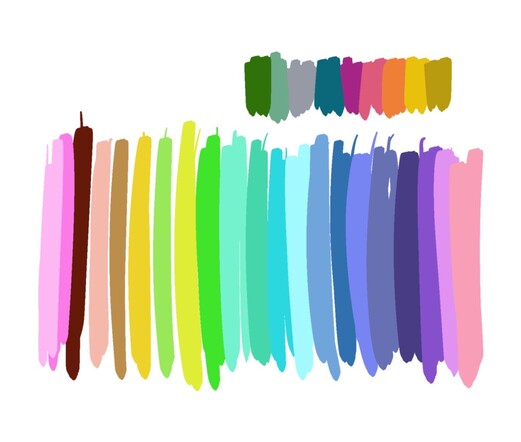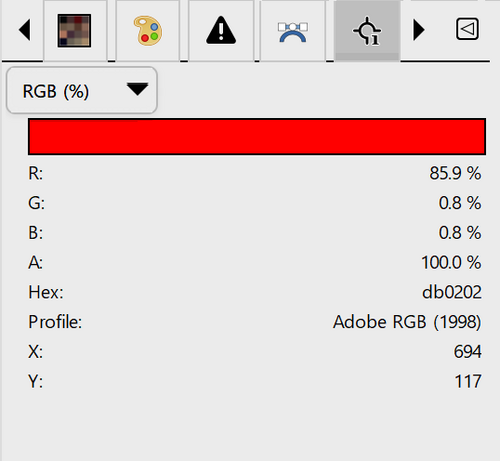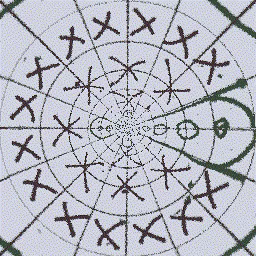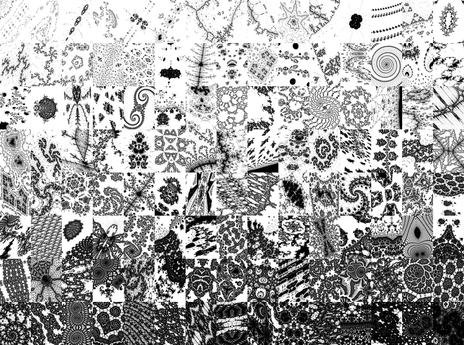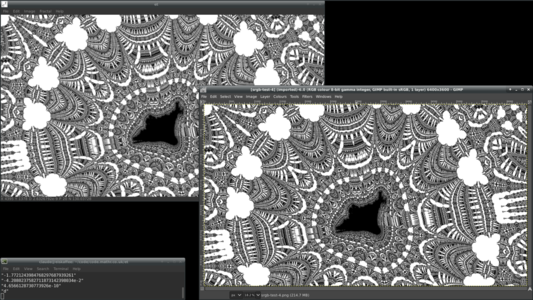LorenAmelang · @LorenAmelang
27 followers · 145 posts · Server social.vivaldi.netI've had one foot stuck in this #DCI-P3 #ColorSpace rabbit hole for days. Found a simple test page for browser support: https://www.wide-gamut.com/test
But even in iOS Safari it did not show #P3 support... Last night I found out why - my #DarkReader extension blocked it. Disable DarkReader and the differences from #sRGB are obvious. (Safari's native Reader Mode allows P3, but it breaks a bit of the page content.) Other iOS browsers also support P3. No Windows or Linux browsers I tried can.
#dci #colorspace #p3 #darkreader #srgb
Jake Coppinger · @jakecoppinger
173 followers · 110 posts · Server aus.social“Perceptually uniform color models and their implications”, an #Observable notebook/blog post about colour theory by Max Bo (Software Engineer at Canva).
https://observablehq.com/@mjbo/perceptually-uniform-color-models
#color #colour #theory #srgb #graphicdesign #design #sydney #australia
#observable #color #colour #theory #srgb #graphicdesign #design #sydney #australia
Manuel Babolin · @manuelbabolin
0 followers · 2 posts · Server mastodon.socialUltimo articolo di Digital Spectrum per questo 2022.
Parlo di #sRGB su web, le ultime novità di #Chrome sul fronte #DisplayP3, un mondo senza password, #Godox e altre cose sul mondo del colore.
https://manuelbabolin.substack.com/p/evadere-dalla-prigione-dellsrgb
#srgb #chrome #displayp3 #godox
jjdraws · @jjdraws
4 followers · 35 posts · Server ohai.socialLove the colour!
#CMYK & #sRGB #colour palettes. #colorpalettes
#cmyk #srgb #colour #colorpalettes
ZeMarmot :gimp: · @zemarmot
289 followers · 239 posts · Server fosstodon.org#GIMP « Currently working on updates to the color picker tool. Now it shows you what the current color profile is ! It also uses that profile to provide more accurate ranges instead of assuming #sRGB space. The final part should be correcting the out-of-gamut indicator to match. » CMYK Student
Julien M. · @julm
485 followers · 4935 posts · Server framapiaf.org@geekscottes pour approfondir, #09c622 n'est pas une couleur à proprement parler car encore faut il préciser dans quel espace de couleur on se place, même si bon, pour les écrans il s'agit généralement du #sRGB, https://fr.wikipedia.org/wiki/Profil_ICC#Raison_d'%C3%AAtre
Cela dit, l'idéal pour mieux savoir de quelle couleur on parle il faudrait plutôt préciser la longueur d'onde dominante, à défaut d'une mesure du spectre lumineux.
Julien M. · @julm
485 followers · 4935 posts · Server framapiaf.org@jz I'm no expert, but AFAIK it depends on where you want to put that color. The #sRGB #ColorSpace is standardized and widely supported by monitors (though some may not actually meet that standard, or need to be color calibrated). The percentages' accuracy may overflow the accuracy of the widely supported #TrueColor #ColorDepth (8-bit/channel) but that accuracy overflows the human eye's anyway. Whose perception depends on the #AmbientLighting on top of that. But again, I'm no expert.
#AmbientLighting #ColorDepth #truecolor #colorspace #srgb
claude · @mathr
288 followers · 2739 posts · Server post.lurk.orgclaude · @mathr
288 followers · 2739 posts · Server post.lurk.orgUsing #ImageMagick #montage #identify and #convert commands to make a #gradient out of image thumbnails sorted by average #sRGB #grey level:
```
montage -tile ${COLUMNS}x${ROWS} -geometry ${TILEWIDTH}x${TILEHEIGHT}+0+0 $( identify -colorspace RGB -format "%[fx:mean] %[filename]\n" in-*.png | sort -nr | cut -d\ -f 2 ) out.png &&
convert tmp.png -colorspace RGB -geometry ${WIDTH}x${HEIGHT} -colorspace sRGB out.png
```
I didn't yet figure out how to get the #gamma-correct colour space conversion to happen inside the montage's own rescaling, so I render at natural size and #downscale with convert afterwards.
The last image is the good result, the other two are gamma-incorrect, thus they appear too dark on screen (and presumably print too).
#imagemagick #montage #identify #convert #gradient #srgb #grey #gamma #downscale
claude · @mathr
288 followers · 2739 posts · Server post.lurk.orggot sRGB gamma-correct scaling working in et, is a bit blurry because it uses mipmaps instead of more advanced (slower) algorithms like GIMP does, but the brightness is good.
before today's coding, the output in the et window was too dark (saved PNGs were brighter when downscaled by GIMP)
key things were: GL_SRGB8_ALPHA8 instead of GL_RGBA in texture specification; glEnable(GL_FRAMEBUFFER_SRGB) to do gamma-correct blending, and manual linear->sRGB in the final "display texture to screen" fragment shader because GtkGLArea does not expose a way to get an sRGB default framebuffer (yet; I filed a ticket)
#opengl #graphics #srgb #gamma

